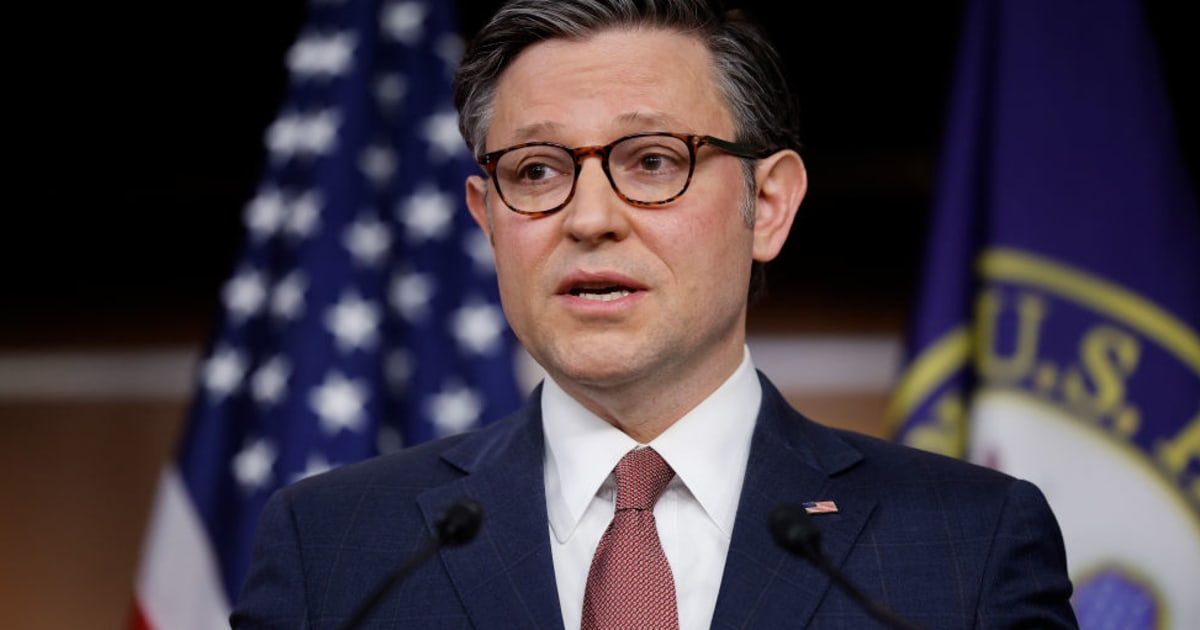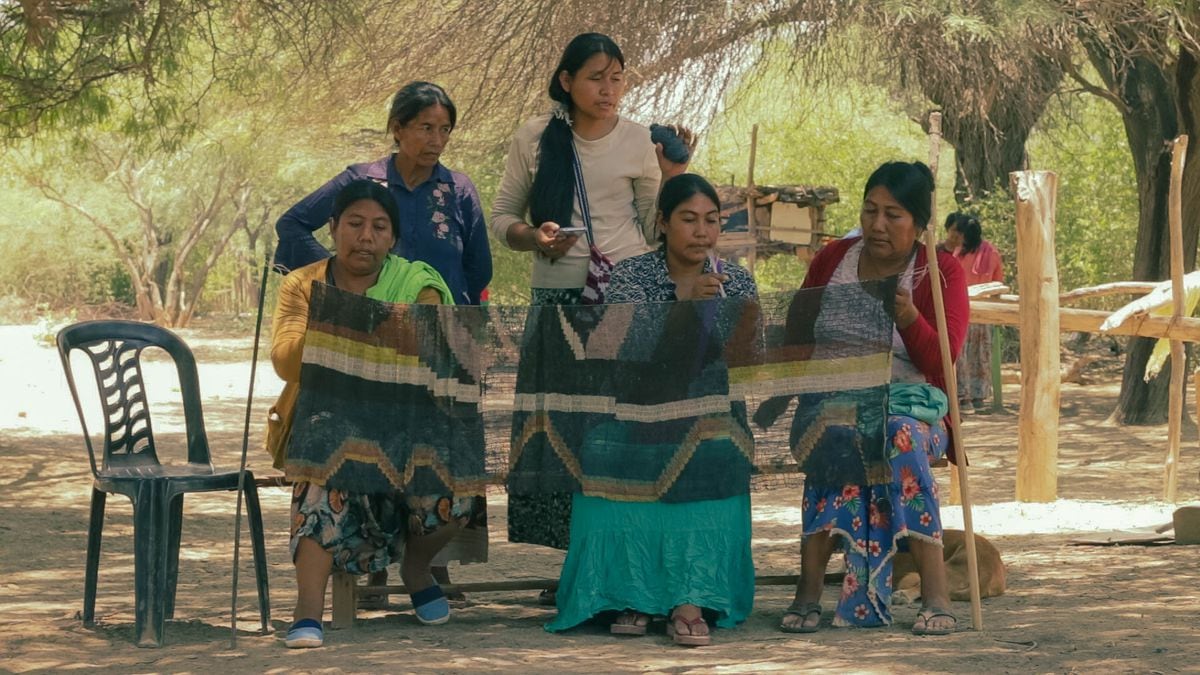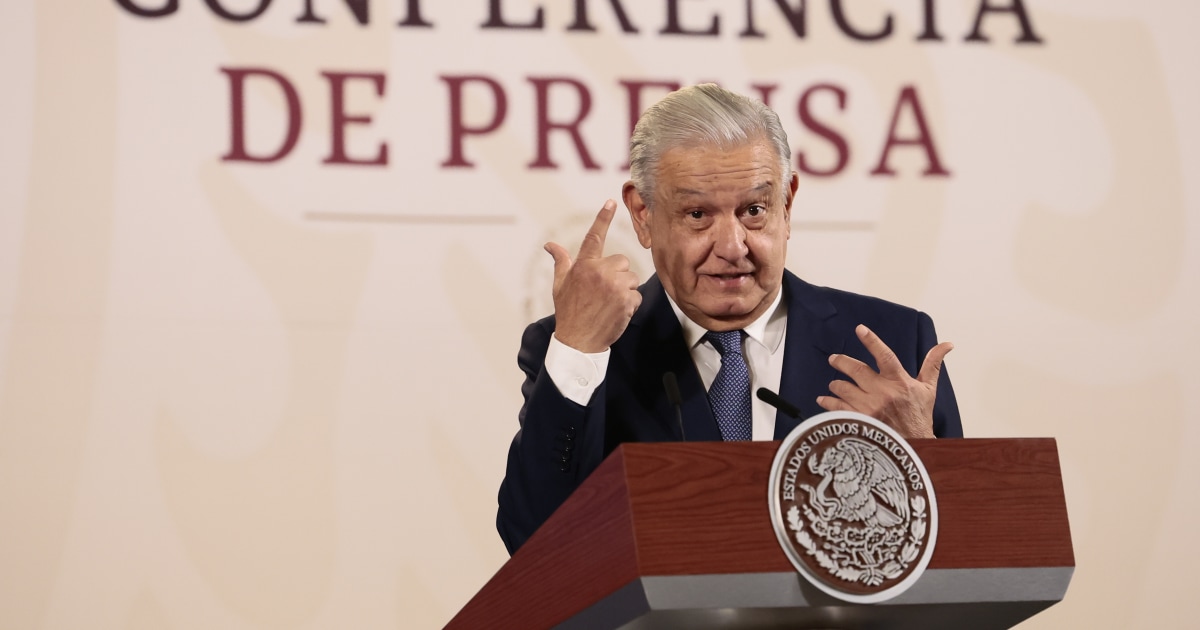EL PAÍS offers the América Futura section open for its daily and global informative contribution on sustainable development.
If you want to support our journalism, subscribe
here
.
In Mexico we speak Spanish, but also 68 other languages.
According to the National Institute of Indigenous Languages, almost six million Mexicans speak one of the 364 linguistic variants associated with 68 languages, which in turn belong to 11 different linguistic families.
Nahuatl, Chol, Totonaca, Mazatec, Zapotec, Otomí, Tzotzil, Tzeltal, Maya and Mixtec are the most widely spoken.
How to reach the Afro-Mexican peoples and the indigenous communities to inform them, for example, of the government's megaprojects if they are not spoken to in the language they speak?
How to make them participate, make decisions about their territories and their collective rights?
With that premise came
Let them know that we know
, an initiative of Community Cohesion and Social Innovation, a civil organization made up of people who work to strengthen community cohesion and promote innovation in Mexico.
The group released 13 animation videos on the collective rights of indigenous peoples in the face of megaprojects in 12 indigenous languages and linguistic variants.
The campaign seeks to reduce the asymmetries of information and power between people who inhabit Mexico to increase the informed participation of women, youth, indigenous and Afro-Mexican peoples, the disabled and migrants in decision-making about their territories.
The initiative has been carried out within the framework of the creation or development of more than 329 megaprojects in the country and includes agro-industrial, energy, extractive, infrastructure and services, tourism,
real estate, waste or industrial in 24 entities of interest.
The objective is that those who live in the territories likely to be affected by these megaprojects can decide on them.
Nahwatlahtolli (Nahuatl Mountain Warrior).
Rights of indigenous peoples before megaprojects
Frame of the animation in which people gather to find out about the megaproject. Video: That They Know That We Know (CCIS)
“Each one of these megaprojects has social, cultural, environmental and economic impacts that are not usually reported before to those who live and travel in the territories in which they are carried out or are intended to be carried out so that they can participate in decision-making on whether they are made or not, or how they are made”, explains Suhayla Bazbaz, director of the project, in an interview with EL PAÍS.
Despite the fact that the Constitution, various international agreements, declarations of rights or the Escazú Regional Agreement recognize the right to informed participation of all people in decision-making that affects them, those that are made in the territories "are usually taken by those who have political power, economic power or own the land without involving the rest of the population”, affirms Bazbaz.
Of the 329 projects identified, 200 correspond to the infrastructure and services sector, 21 to energy and five to agro-industrial.
103 correspond to other areas.
“The project not only seeks to deliver the information, but also approaches the community to find out how it understands this type of project.
Above all because there is a lot of information, but it must be adapted to the contexts and realities of each indigenous people.
That is why I find it very valuable, because it embraces the specificity of each community, so that everyone can make more informed decisions," Sasil Sánchez Chan, interpreter of Maaya ta'an (Maya, from the southern region) told América Futura. of Yucatan).
The initiative covers 24 of the 32 states of Mexico.
The majority of translated projects are in Oaxaca (46), Mexico City (38), Quintana Roo (23), the State of Mexico (22) and Chiapas (21).
“It is necessary that the information made available to the peoples is in their own languages and considers their identity, culture, customs, traditions, and worldviews,” says Bazbaz.
“They must be informed who will carry out the projects, in what location, for how long, with what technology and what will be the social, cultural, environmental and economic impacts that the projects will have, from their planning and construction to their operation and closure.
This contributes not only to the linguistic rights of the peoples but also to their right to territory and to self-determination and autonomy”.
Frame from one of the animated videos that shows the hand of a businessman placing industrial machinery and destroying ecosystems. Let them know that we know (CCIS)
The languages into which the projects have been translated are Ralámuli (central Tarahumara), P'orhepicha (Purépecha), Jñatjo (Mazahua del Oriente), Mexikatlahtolli (Nahuatl from the Huasteca Hidalguense), Náhuatlahtolli (Nahuatl from the Upper Center), Nahwatlahtolli (Nahuatl from the mountain region of Guerrero), Nawatlajtolli (Nahuatl from the Huasteca Potosina), Maseual (Nahuatl from the Northeastern Sierra of Puebla), Tu'un da'vi (Mixtec from the High West), Bats'il k' op (Northern Tseltal), Maaya t'aan (Maya) and Teenek (Teenek Huasteca Potosina Region).
The translation and interpretation into each language was the responsibility of eight women and four men, members of the towns and speakers of each of the variants.
In total, more than 30 people were involved.
“The importance of this type of material is very great,
The initiative works on four strategies: traditional, alternative and disruptive communication documents and actions;
Accessible information for indigenous and Afro-Mexican peoples and communities and for people with disabilities, so that they can exercise their right to informed participation and Dialogue with authorities and companies to influence the generation and publication of information related to projects that affect them in some way.
Each audiovisual material tells a story.
In the coming months
Let them know that we know will
implement a dialogue and advocacy strategy with authorities so that they generate and publish information related to carrying out megaprojects.
81 normative instruments have been reviewed in which 350 applicable obligations were identified, from which 50 specific proposals were determined in the short and medium term.
In addition, they will seek dialogue with companies in the sectors to which the megaprojects correspond to influence awareness and compliance with their responsibility to respect the human rights of those who may be affected by their business activities, including the right to information for participation. in making decisions about megaprojects that they promote.
In the accessible information strategy, the initiative will also create materials in accessible formats for people with disabilities on their right to informed participation in decision-making on megaprojects.
These will be in easy reading format, braille, audio text and Mexican sign language.




/cloudfront-eu-central-1.images.arcpublishing.com/prisa/L2GUYXJ3FVDMXESOLU4CJ4VQZY.jpg)
/cloudfront-eu-central-1.images.arcpublishing.com/prisa/SUXSGP2YZBHQLNK4QN5DDKB32U.jpg)

/cloudfront-eu-central-1.images.arcpublishing.com/prisa/6YVGDXFAWRX3CRBJPUPWBML5SI.jpg)

